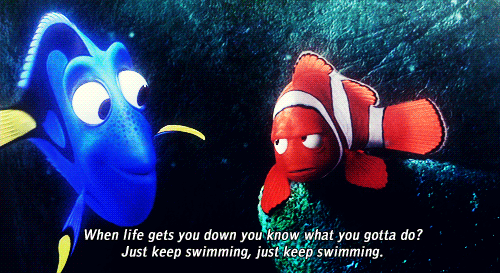Yesterday a big idea came to me. An idea for an ambitious writing project - a book-length series of short stories that would be linked by their main character, by their purpose, and by their structure. The long story I mentioned last week would be the first one in this potential series.
The structure of this story, where four different tales are interleaved, helped me to make the Bigger Point I was trying to make - the reader at some point has to think about what they all have in common (I hope), and why what they have in common matters. It's the Crash narrative, right? You tell a bunch of different eye-level stories in order to get at something about the way humans act and feel. It was also a really interesting way to write, to keep switching voices every couple of pages.
I don't remember where I first heard of the "novel in stories", but once I understood what it meant, I decided I wanted to write one. My attempt eventually became a novella, Those Ghosts of Time, which is still Matt's favorite thing I've written and which I know will never, ever, ever sell. It didn't turn out to be a novel in stories, though - in finished form it was a novella about one character and a few assorted stories that ended up not fitting anywhere in the main narrative.
Published novels-in-stories I've heard of are Justin Cronin's Mary and O'Neil and Molly Ringwald's recent (apparently quite respectable) foray into fiction, When It Happens to You. I'm sure there are many others. I've read books of short stories that seemed all of a piece, as if the characters all lived in the same emotional town - Circling the Drain by the unjustly late Amanda Davis, most of what Raymond Carver's written. It's not the same art form as just revisiting character or locations, like King's Castle Rock or Fitzgerald's various characters. Oddly, even though it's a form I deeply want to emulate, I can't think of a single example of a novel in stories I've actually read. (I'm in the middle of Lost in the Funhouse, but I'm not sure that quite counts.)
The thing I liked most about this idea was telling a single narrative through a bunch of distinct tales. Drawing a throughline beneath things that seemed unconnected. I didn't really have a good outlet for it, though, until I wrote this story.
What I wanted to do in the end was write a series of stories that explored stuff we live with every day - the nature of being in our bodies, the experience of growing older in America, the way we view people with mental illness - but that we don't admit or talk to each other about much. And I wanted to write more about this interesting character I invented, a teenage androgyne, who would help me explore the problem of pronouns in the English language (a bit nerdy, but hey, me and grammar have been best buds for a long time) among other, more significant issues. In brief, it would be a collection of humanist spelunkings that were linked and were all structurally identical. Not actually a novel in stories, but a book of stories that had a great deal in common with each other. I even came up with a fancy name for it.
This morning in the shower I tried to talk myself out of this project. Writing literary is exhausting, and deep down, I don't really believe I do it well. I've got two other books to work on. I collected years of disconnected notes to come up with all the concepts and storylines I slotted into last week's story; how will I think of so many more? No one publishes books of short stories. No one likes books of short stories. Maybe the one story I've written is actually crap and the whole project should be torpedoed now.
Etc., etc. After several long minutes of this, I'd had enough. I stood there in the shower and mentally put down a staff-slamming Gandalf inside my head, between me and the taunting Balrog of negativity that was listing off all this stuff for me. NO. YOU SHALL NOT PASS, MEAN BRAIN.

If no one took on any demanding and weird literary projects, there are so many incredible pieces of work we'd never have. And there's no reason to believe in this project any less than the other ones I've started (and finished). There's especially no reason to cut it off before it begins. I just need to put down one word at a time, take as many notes as I can, and go forth.
There's a lot more to be said here, about my uncomfortable reactions to my own crazy ambitions, about writing a form I haven't studied, about the strange fact that deep down I don't think I write literary fiction well. That realization came out of nowhere. But I think that'll do for today.












